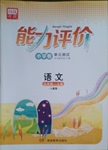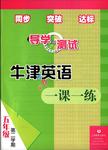题目内容
【题目】A study of more than five million books, both fiction and non-fiction, has found a marked decline in the use of emotional words over time. The researchers form the University of Bristol used Google Ngram Viewer, a facility for finding the frequency of terms in scanned books, to search for more than 600 particular words identified as representing anger, dislike, fear, joy, sadness and surprise.
They found that almost all of the categories showed a drop in these “mood words” over time. Only in the category of fear was there an increase in usage.
“It is a steady and continuous decrease,” said Dr Alberto Acerbi. He assumed that the result might be explained by a change in the position occupied by literature, in a crowded media landscape. “One thing could be that in parallel to books the 20th century saw the start of other media. Maybe these media — movies, radio, drama, had more emotional content than books.”
Although both joy and sadness followed the general downwards trend, the research, published in the journal PLOS One, found that they also exhibited another interesting behaviour:the ratio (比率) between the two varied greatly, apparently mirroring historical events.
During the Roaring Twenties the joy-to-sadness ratio reached a peak that would not occur again until before the recent financial crash. But the ratio plunged at the height of the Second World War. Nevertheless, the researchers held a reserved opinion about their claim that their result reflected wider social trends. In the paper, they even argue that the reverse could be true.
“It has been suggested, for example, that it was the suppression (压抑) of desire in ordinary Elizabethan English life that increased demand for writing ‘filled with romance and sex’… perhaps,” they conclude, “songs and books may not reflect the real population any more than catwalk models reflect the average body.”

【1】The word "decline" (paragraph 1) is closest in meaning to_________.
A. increase B. rise C. decrease D. change
【2】A study of more than five million books indicated a decrease in “mood words” over time except_______.
A. in the use of the words of historical events
B. in the category of fear
C. in the category of literature
D. in the category of joy
【3】What’s the main idea of this passage?
A. A study of emotional words.
B. A study about vocabulary in literature.
C. Reasons for the use of emotional words decreases in literature.
D. A study on increase in the category of fear.
【答案】
【1】C
【2】B
【3】C
【解析】
试题分析:本篇是一篇关于文学作品中词汇用量研究的科普文章。开篇首段即提出一个研究结论:在各种类型的书籍中,表达情感的词汇用量在下降。第二段对上文进行补充,强调单单表达恐惧的词汇用量呈上升趋势。紧接着第三段中给出了造成这种情绪词汇下降的原因——新媒体(电影、广播、戏剧)的崛起。第四、五、六段进一步探讨了新话题:表示快乐的词汇用量与表示悲伤的词汇用量这两者的比率,能间接反映出历史事件和历史趋势。
【1】词义辨析题。decline 下降;increase 增加;rise上升;decrease下降;change改变 根据句意故选C。
【2】细节理解题。根据原文“Only in the category of fear was there an increase in usage.”在使用上,只有恐惧类别的词是增加的。故选B。
【3】主旨大意题。通览全文,本文在陈述了表达情感的词汇量在下降这一事实以后,着重说明这一现象的原因。故选C。

 能力评价系列答案
能力评价系列答案 唐印文化课时测评系列答案
唐印文化课时测评系列答案 导学与测试系列答案
导学与测试系列答案【题目】请根据下列信息,用英语写一篇关于2006年诺贝尔化学奖得主罗杰·科恩伯格教授(Roger D. Kornberg)的简介:
姓名 | Roger D. Kornberg 罗杰·科恩伯格 |
|
国籍 | 美国 | |
年龄 | 59岁 | |
所获奖项及相关情况 2006年诺贝尔化学奖(the Nobel Prize in Chemistry for 2006),其研究有助于对癌症、心脏病的治疗。其父也是诺贝尔奖得主之一。罗杰·科恩伯格教授是自诺贝尔奖颁发逾100年来,第六位父子同获诺贝尔奖的科学家。 | ||
教育工作经历 曾在哈佛大学(Harvard)修读化学,后在斯坦福大学获得博士学位,自2003年起就职于该大学医学院。(Stanford University School of Medicine) | ||
【写作要求】
词数:100左右。
__________________________________________________





